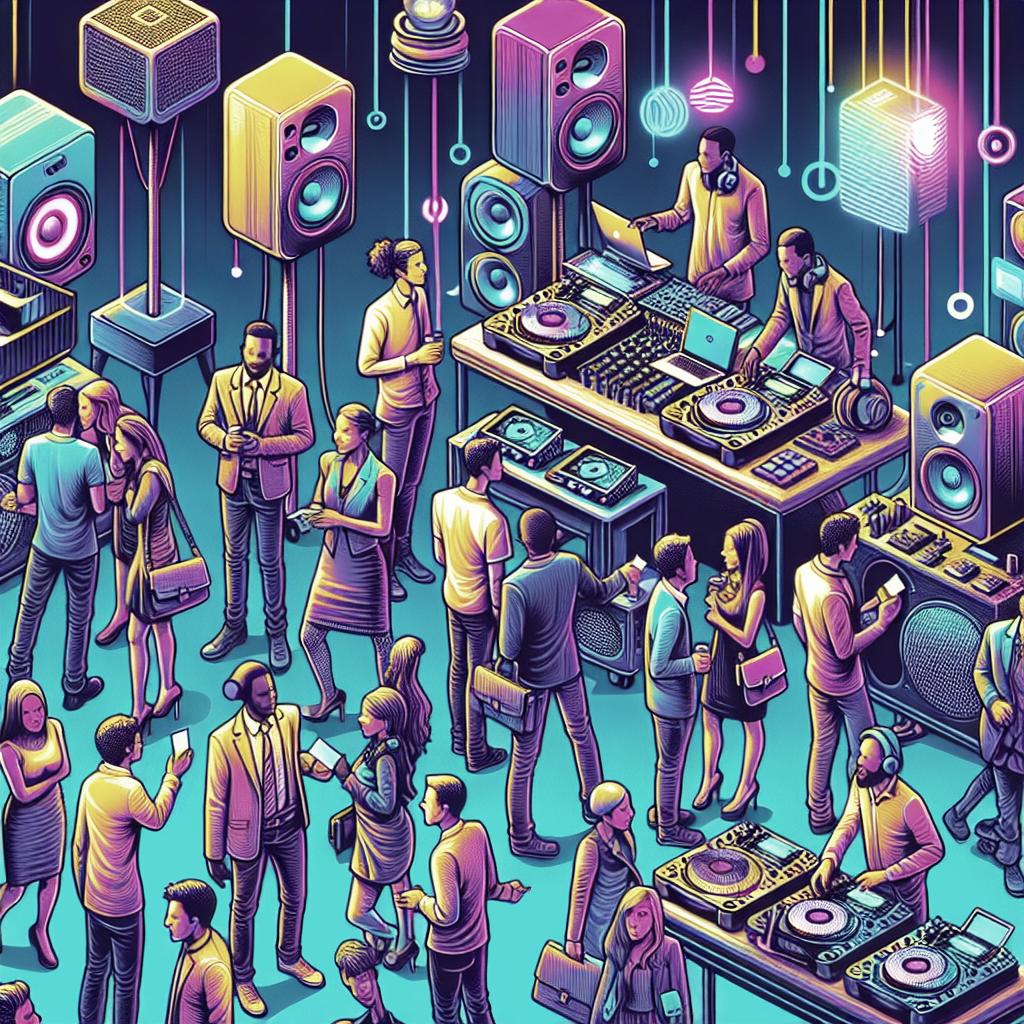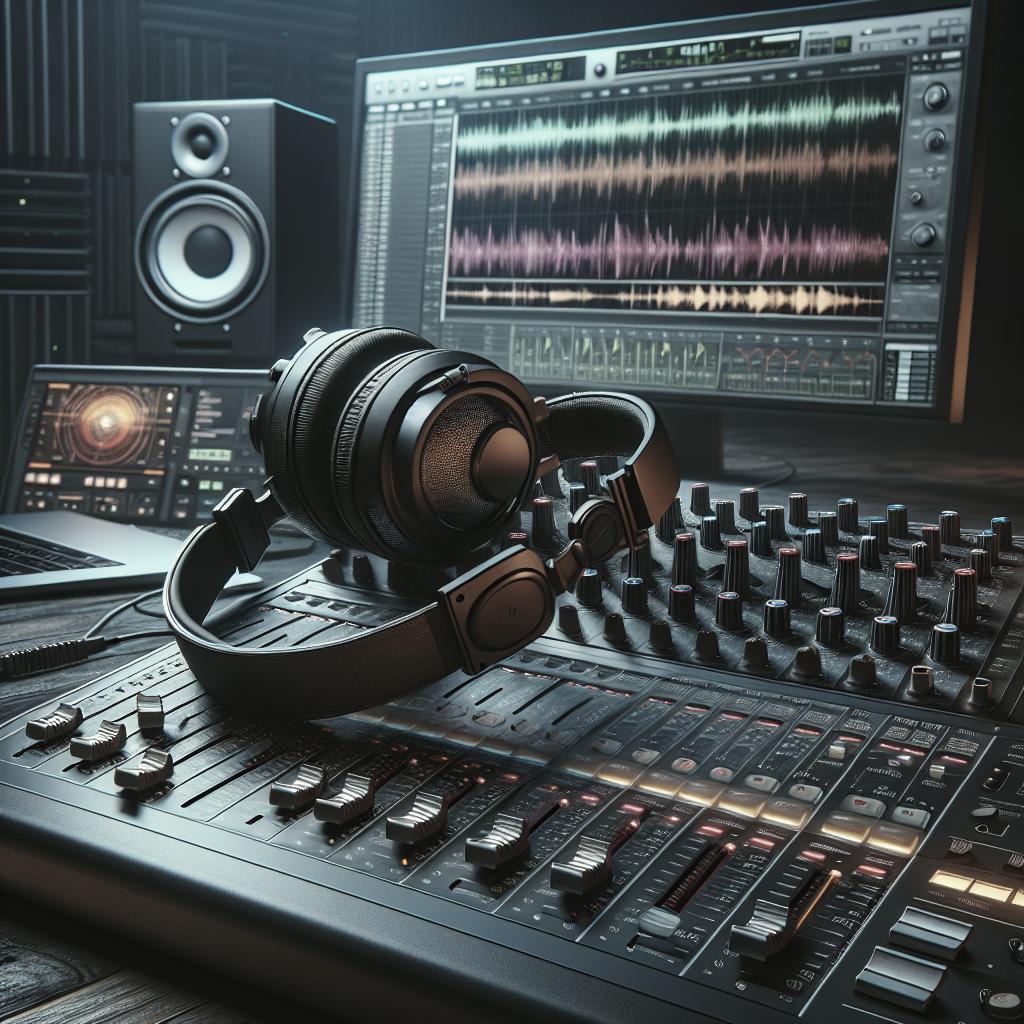<>
“`
Summary of main points
“` “`
Networking in the electronic music industry can be challenging, but it opens doors to incredible opportunities. In this blog post, we’ll explore numerous ways to effectively network in this vibrant field. From immersing yourself in local music scenes and attending industry events to leveraging the power of social media and starting your own blog or podcast, there are a multitude of strategies to get noticed and build connections. We’ll also discuss more focused approaches like joining specific organizations, volunteering your time, and forming a strategic list of contacts. Remember, staying up to date with industry news and giving back to the community are just as important for building lasting relationships. Dive into these tips and take your networking game to the next level in the electronic music industry!
Networking tips
Music Fans are Buying Fewer Tickets
In recent years, there has been a noticeable decline in ticket sales among music fans, including in the electronic music scene. This trend poses additional challenges for up-and-coming artists, promoters, and industry professionals looking to establish themselves. Consequently, networking has become even more essential to ensuring sustainable growth and connection-building within the industry.
Networking effectively can help individuals navigate these challenges by fostering collaborations, discovering alternate revenue streams, and creating a loyal fan base. Whether you’re an artist, DJ, producer, promoter, or any other stakeholder in the electronic music industry, connecting with the right people can significantly impact your career trajectory. Let’s dive into the practical tips to elevate your networking efforts in this competitive domain.
1 – Get involved in your local music scene
The first step to successful networking is becoming an active participant in your local music scene. Attend as many local shows, gigs, and festivals as you can. Participate not only as an audience member but also try to engage with the artists, promoters, and other relevant stakeholders. Being a familiar face will increase your chances to connect meaningfully.
Getting involved locally means understanding the scene’s dynamics, fan demographic, and key influencers. Supporting local artists and venues can create symbiotic relationships that lead to collaborative efforts. Offer your skills, whether as a performer, promoter, or even a volunteer, to demonstrate your commitment and passion for the local music community.
2 – Keep your ear to the ground
Staying informed about new developments in the electronic music industry is vital. Subscribe to newsletters, magazines, and blogs dedicated to electronic music to stay updated on upcoming events, releases, and trends. Understanding industry changes will allow you to position yourself strategically and leverage new opportunities as they arise.
Follow influential artists, DJs, producers, and industry veterans on social media to get real-time insights into their activities and industry trends. Being knowledgeable about current happenings will enable you to engage in meaningful conversations and contribute value during networking interactions.
3 – Attend industry events
Industry events such as conferences, seminars, workshops, and expos provide excellent networking opportunities with peers, veterans, and potential collaborators. These events are designed to foster interactions, learning, and professional growth within the electronic music sector.
Make the most of your attendance by preparing beforehand. Research the attendees and speakers, have your business cards ready, and don’t shy away from initiating conversations. These firsthand interactions can lead to valuable relationships that support your career journey.
4 – Join an organization for music industry professionals
Joining organizations dedicated to music industry professionals, such as the Association for Electronic Music (AFEM), can provide significant networking opportunities. These organizations often host exclusive events, provide valuable industry resources, and create forums for members to connect and collaborate.
Membership in these organizations not only positions you as a serious professional but also provides access to a community of like-minded individuals, reducing the isolation that can sometimes come with working in the music industry.
5 – Join an organization for arts and culture industry professionals
Similarly, joining broader organizations related to arts and culture can expose you to networking opportunities outside your immediate industry. Examples include Americans for the Arts and similar international organizations that support a broad range of creative professionals.
These organizations can help you understand and navigate cultural trends, funding opportunities, and collaborative projects that intersect with music. Cross-industry connections can often lead to innovative projects and partnerships that benefit your career in unexpected ways.
6 – Use social media
Social media platforms like Instagram, Facebook, and Twitter are invaluable tools for networking in the electronic music industry. Use these platforms not just to promote your work, but also to connect with industry professionals, interact with fans, and stay updated on industry trends.
Engage actively by commenting on posts, joining conversations, and sharing valuable content. Consistency and authenticity on social media can help you build a strong online presence, making it easier for industry professionals and fans to connect with you.
7 – Start your own blog or podcast
Launching your own blog or podcast can position you as a thought leader in the electronic music space. Choose a niche that aligns with your interests and expertise, and create content that provides unique value to your audience.
This platform will enable you to interview artists, review music, discuss industry trends, and share your journey, attracting a dedicated audience while opening doors to professional connections. A successful blog or podcast can significantly bolster your credibility and visibility in the industry.
8 – Volunteer your time
Volunteering your time at events, festivals, or with music organizations provides you with hands-on experience and valuable networking opportunities. Whether it’s helping with event logistics, marketing, or artist management, volunteering allows you to connect with industry professionals in a collaborative setting.
It’s also an excellent way to demonstrate your commitment and willingness to contribute to the industry, which can lead to paid opportunities and endorsements from respected figures within the community.
9 – Get involved in online communities
Online communities, forums, and groups dedicated to electronic music can be treasure troves of networking opportunities. Websites like Reddit, specialized music forums, and Facebook groups host vibrant discussions where you can share your knowledge, ask questions, and connect with other enthusiasts and professionals.
Participating actively in these communities can establish your reputation as a knowledgeable and engaged community member, furthering your networking reach. Moreover, online communities often share news about events, collaborations, and opportunities that can be beneficial for your career growth.
10 – Make a “top 100” list
Creating and sharing a “top 100” list of DJs, tracks, venues, or influential figures in the industry can be an effective way to network. This list showcases your deep knowledge and appreciation for the scene and can attract attention from those you have included.
Be sure to promote your list through social media and other platforms, tagging and mentioning the people or entities on your list. This can start conversations and build relationships with key figures who feel flattered and recognized by your mention.
11 – Be persistent
Persistence is essential for effective networking in the competitive electronic music industry. Building meaningful connections takes time and effort, and you may encounter setbacks and rejections along the way. However, staying committed and consistently putting yourself out there increases your chances of success.
Follow up courteously after meeting someone, keep attending events, and continue engaging with the community. Persistence demonstrates your dedication and passion for the electronic music industry, which is attractive to potential collaborators and mentors.
12 – Stay up to date with industry news
Being well-informed about the latest news, trends, and developments in the electronic music industry can provide a significant networking advantage. Subscribe to leading music magazines, blogs, and podcasts that cover electronic music comprehensively.
Understanding industry changes, emerging technologies, and new artists will allow you to engage in knowledgeable conversations and position yourself as an informed and proactive industry participant. This knowledge not only makes you a more attractive networking partner but also helps you identify opportunities for innovation and collaboration.
13 – Give back to the community
Building a strong network is not just about what you can gain but also what you can give. Look for opportunities to support others in the electronic music community, whether through mentorship, sharing resources, or promoting new talent.
Contributing positively to the community creates goodwill and positions you as a valuable and trusted member of the industry. This generosity often results in mutually beneficial relationships and a supportive network that can help you achieve your career goals.
Summary of main points
| Networking Tip | Description |
|---|---|
| Get involved in your local music scene | Attend local shows and build relationships within the community. |
| Keep your ear to the ground | Stay updated on industry trends through newsletters and social media. |
| Attend industry events | Participate in conferences and workshops to meet industry professionals. |
| Join an organization for music industry professionals | Connect with professionals through groups like AFEM for resources and networking. |
| Join an organization for arts and culture industry professionals | Engage with broader cultural organizations for interdisciplinary opportunities. |
| Use social media | Leverage platforms like Instagram and Twitter to build an online presence. |
| Start your own blog or podcast | Create content to establish your thoughts and engage with a dedicated audience. |
| Volunteer your time | Help at events and organizations to gain experience and connections. |
| Get involved in online communities | Engage in forums and groups to share knowledge and network with peers. |
| Make a “top 100” list | Showcase industry knowledge and attract attention from influencers. |
| Be persistent | Consistently engage and follow up to build long-term relationships. |
| Stay up to date with industry news | Be informed about developments to engage meaningfully in conversations. |
| Give back to the community | Support others to build a mutually beneficial network. |
“`


